Abstract
Eighty patients aged 75 years and over were interviewed in the surgery or at home to assess their level of knowledge, degree of compliance, and problems with their medicines. Regular medication was prescribed to 59 patients, who took a total of 206 drugs. The correct purpose of medication was stated in 72% of cases, the dosage regimen recalled accurately for 75%, and the correct name given for 64% of drugs. The elderly rated their compliance as 'good' (never miss doses) for 77% of drugs prescribed. This correlated poorly for individual patients with the level of correct compliance as assessed on computer records of repeat prescriptions, which nevertheless was accurate for 80% of medicines taken. A significant difficulty for the elderly was the removal of tops from medicine containers, occurring in 18 cases (31% patients), including half of those taking analgesics or nonsteroidal anti-inflammatory drugs. The widespread, legally enforced, use of child-resistant containers for the elderly frequently seems inappropriate. Further improvements in comprehension and compliance may occur with regular explanation and rationalisation of medication by the family doctor, when visiting the elderly at home.
Full text
PDF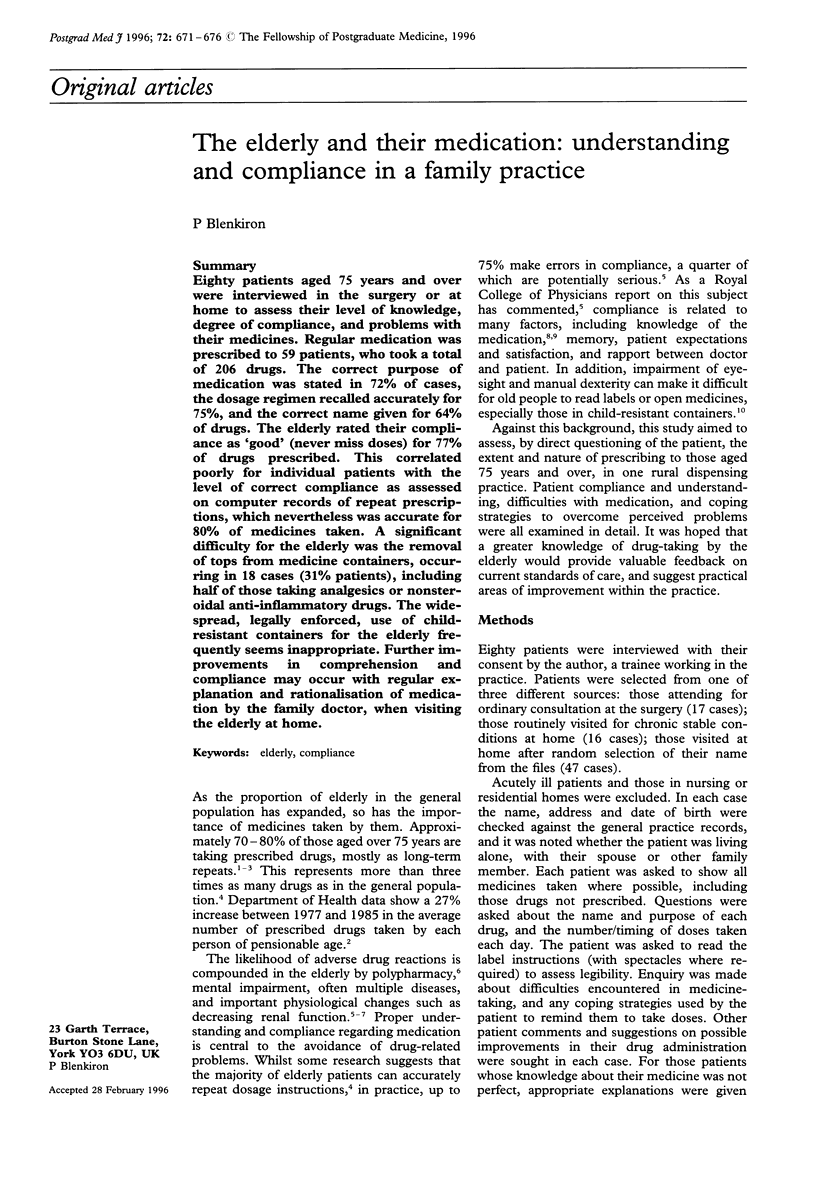
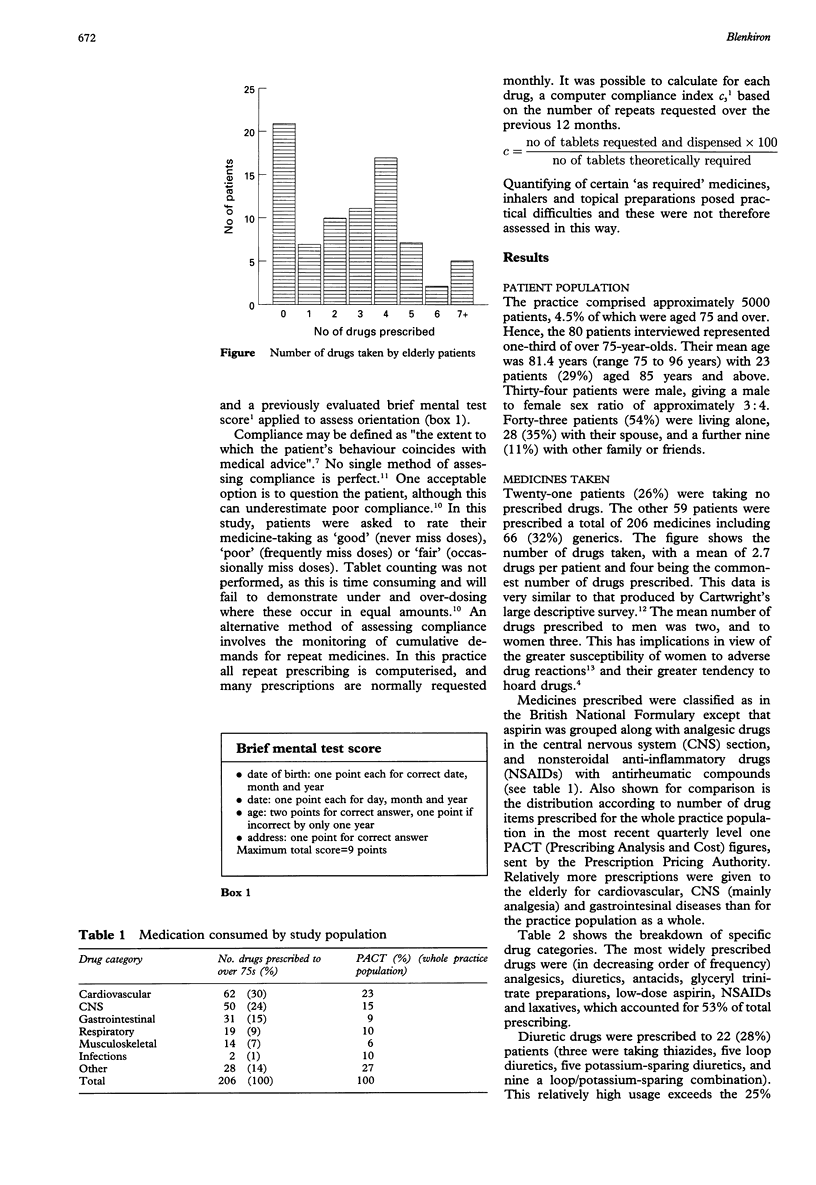
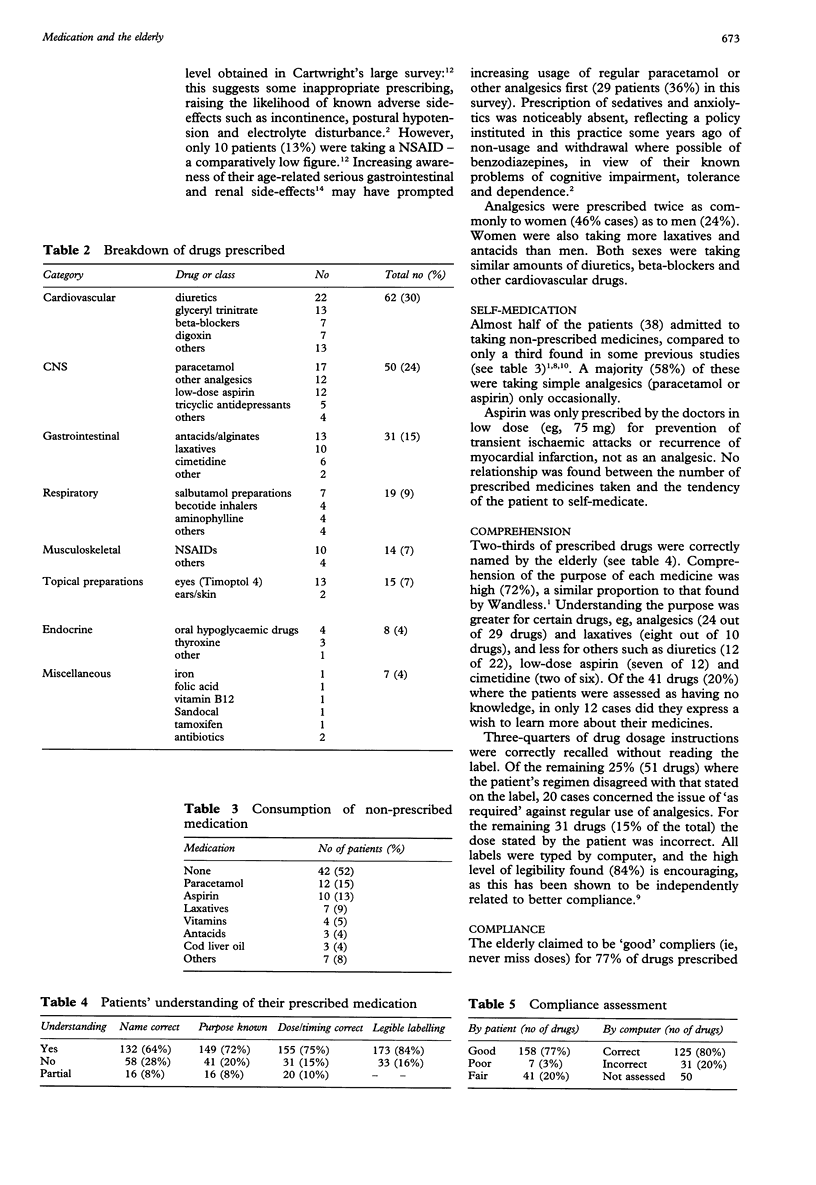
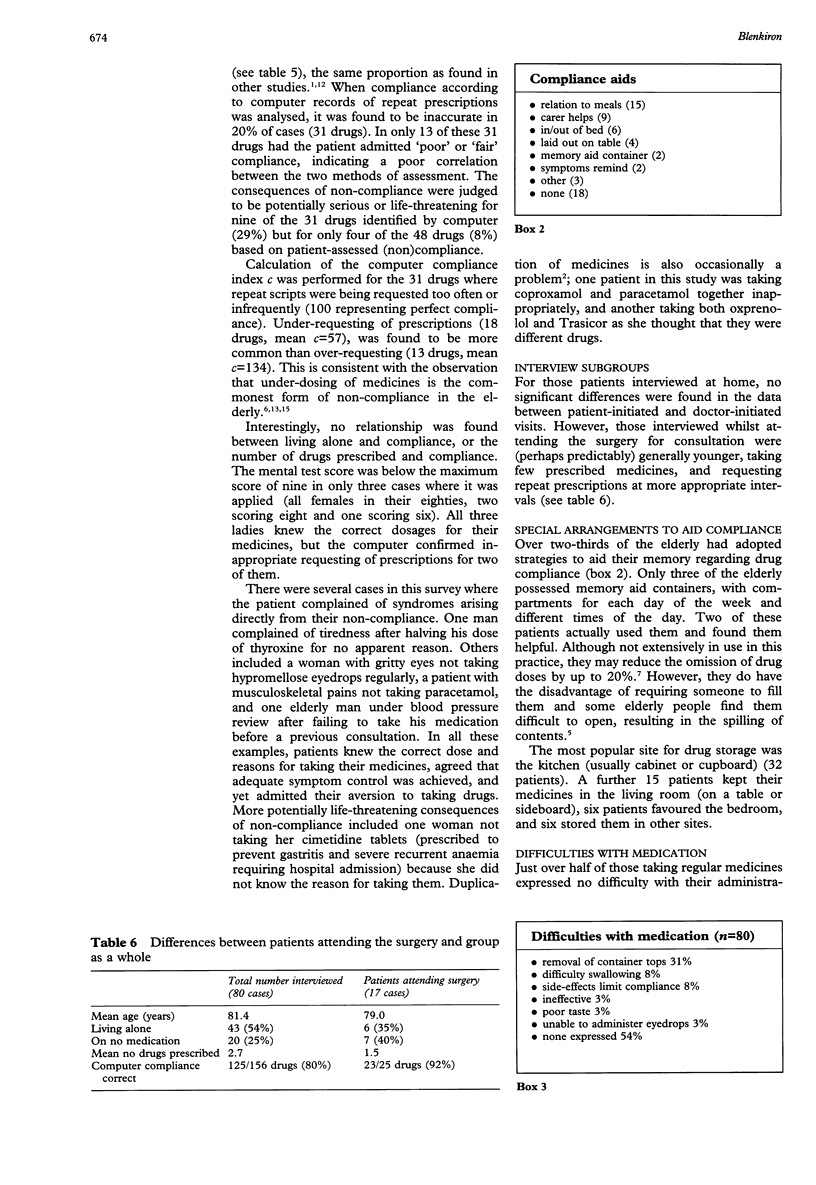
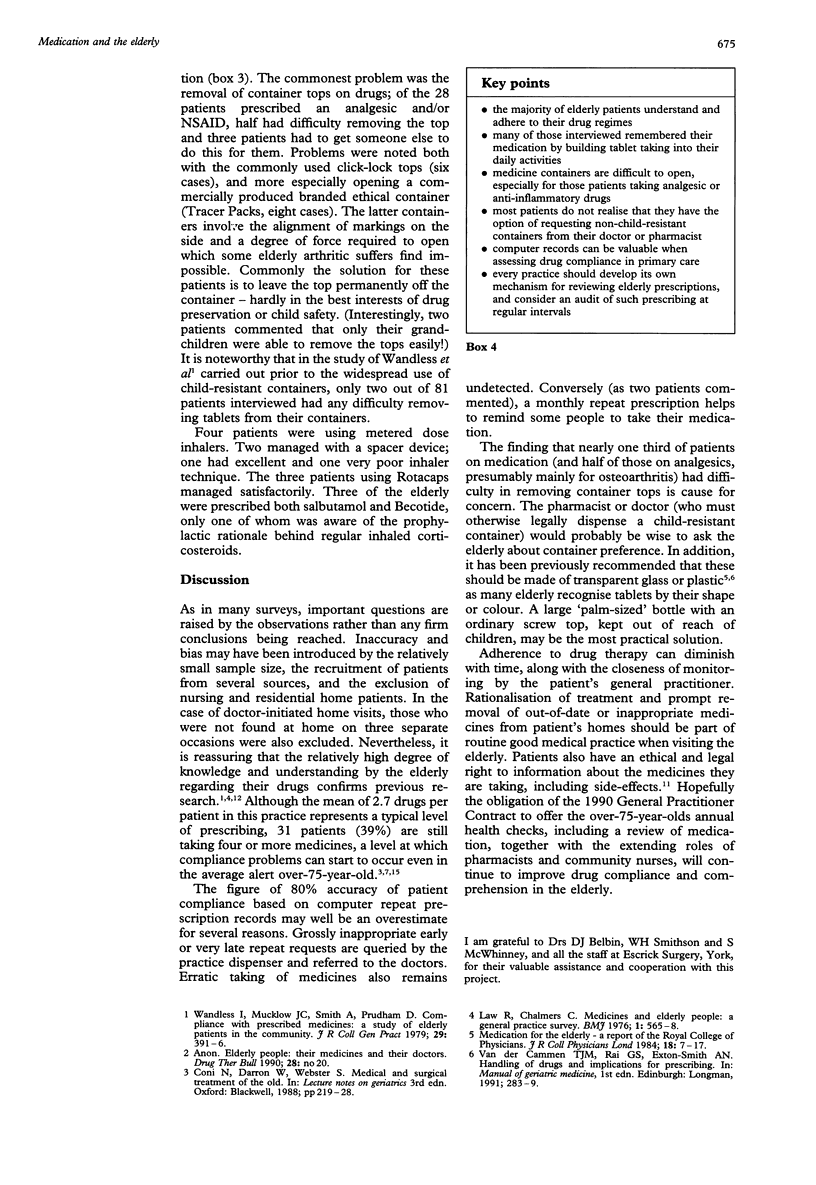
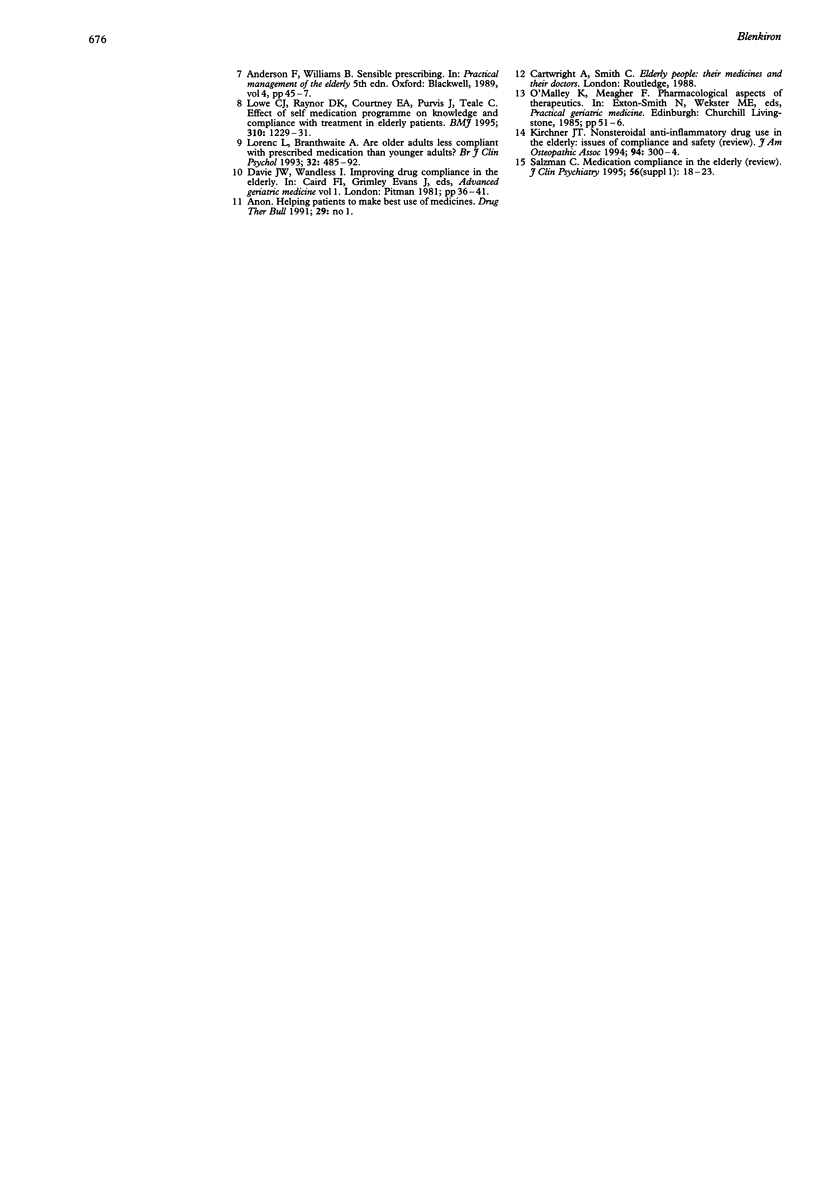
Selected References
These references are in PubMed. This may not be the complete list of references from this article.
- Kirchner J. T. Nonsteroidal anti-inflammatory drug use in the elderly: issues of compliance and safety. J Am Osteopath Assoc. 1994 Apr;94(4):300–304. [PubMed] [Google Scholar]
- Law R., Chalmers C. Medicines and elderly people: a general practice survey. Br Med J. 1976 Mar 6;1(6009):565–568. doi: 10.1136/bmj.1.6009.565. [DOI] [PMC free article] [PubMed] [Google Scholar]
- Lorenc L., Branthwaite A. Are older adults less compliant with prescribed medication than younger adults? Br J Clin Psychol. 1993 Nov;32(Pt 4):485–492. doi: 10.1111/j.2044-8260.1993.tb01084.x. [DOI] [PubMed] [Google Scholar]
- Lowe C. J., Raynor D. K., Courtney E. A., Purvis J., Teale C. Effects of self medication programme on knowledge of drugs and compliance with treatment in elderly patients. BMJ. 1995 May 13;310(6989):1229–1231. doi: 10.1136/bmj.310.6989.1229. [DOI] [PMC free article] [PubMed] [Google Scholar]
- Salzman C. Medication compliance in the elderly. J Clin Psychiatry. 1995;56 (Suppl 1):18–23. [PubMed] [Google Scholar]
- Wandless I., Mucklow J. C., Smith A., Prudham D. Compliance with prescribed medicines: a study of elderly patients in the community. J R Coll Gen Pract. 1979 Jul;29(204):391–396. [PMC free article] [PubMed] [Google Scholar]


